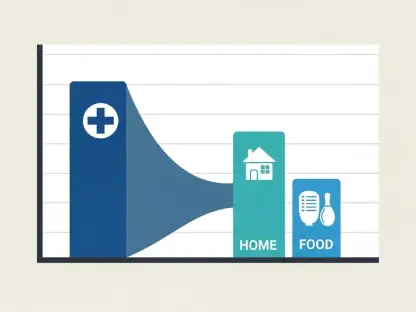As franchise businesses steadily grow and reach new heights, their operational dynamics become increasingly complex and ripe with new risks. Such expansion presents franchise owners with the dual challenge of maintaining quality while effectively managing risks that grow parallel to their scale. A crucial aspect often overlooked in this process is insurance coverage, where static models fail to adapt to the expanding landscape of a business, leaving owners vulnerable to unforeseen liabilities. Recognizing and addressing insurance coverage gaps is paramount for protecting growth investments and ensuring long-term sustainability.
Appreciating the Dynamic Nature of Insurance
Pitfalls of a One-Size-Fits-All Insurance Approach
In the early stages of franchise operations, a one-size-fits-all insurance model might appear suitable; however, this perception often leads to significant oversights as businesses grow. Franchise owners frequently rely on initial policies without reassessing them; these policies typically encompass general liability and workers’ compensation but lack provisions for emerging risks. With digital transformation advancing swiftly, cyber liability and employment practices liability insurance (EPLI) have become crucial components, yet these are often absent from static starter policies. This oversight can expose owners to substantial financial threats, underscoring the importance of reassessing insurance needs periodically.
Compounding this problem is the mistaken assumption that insurance is a straightforward commodity. Franchisees often wrongly equate the coverage required for a single location with that needed for multiple sites. This one-size-fits-all approach fails to account for the complex, growing risk environment. Simplifying insurance to fit all scenarios can mislead business owners into underestimating the protection required against evolving threats like cyber-attacks. With cyber incidents on the rise, base policy coverages often fall short, providing inadequate protection for expansive claims. Hence, franchise owners should prioritize dynamic, specialized insurance solutions that align with their business’s scale and evolving risk landscape.
Insufficient Base Coverage and Shifting Risk Profiles
Starter policies often come with minimal cyber coverage, ranging from $50,000 to $100,000, which may not suffice for large-scale claims resulting from sophisticated cyber threats. As a business adds locations and complexities, evolving risks demand increased attention, potentially pushing insurance costs higher and even exceeding $250,000 annually. Franchise operators need a tailored approach that aligns coverage with a business’s true risk profile, considering not just the number of sites but the nuanced exposures each one faces.
The broader challenge lies in bridging the gap between perceived coverage and actual risk exposure. Many franchisees find themselves in a predicament, assuming coverage suffices only to realize gaps during critical incidents. Addressing this need requires an ongoing appraisal of insurance needs, focusing on new business practices and vulnerabilities brought forth by expansion. This insight calls for a well-rounded strategy tailored to specific needs, optimizing coverage while managing costs efficiently. Effective insurance management becomes increasingly critical within current economic constraints, where margins are tighter than ever, demanding astute risk assessment and cost-control measures.
Practical Considerations in Managing Claims
Timely Reporting and Broker Involvement
Dealing with insurance claims in a timely and efficient manner is pivotal for minimizing costs and ensuring optimal protection. Utilizing the expertise of brokers provides invaluable support; however, their involvement shouldn’t end once a policy is procured. Brokers play a vital continuous role, aiding franchisees in managing claims processes effectively. They emphasize the significance of prompt reporting, as claims reported 48 hours after an incident can incur costs 73% higher than those reported promptly. Aligning with agents who offer extensive support throughout the lifecycle of claim management optimizes outcomes and fortifies a business against costly delays.
Delving further into practicalities highlights the imperative that franchisees ensure continuous communication with agents who comprehend their operations and can adeptly navigate claims scenarios. This ongoing engagement fosters a proactive relationship with insurers and brokers, mitigating risks associated with delayed responses. Moreover, franchise owners should cultivate a robust internal process that prioritizes swift claim reporting paired with intelligent decision-making to facilitate business continuity and safeguard financial health. A comprehensive strategy encompassing tailored coverage, knowledgeable brokers, and immediate action enables franchisees to manage claims efficiently and curtail financial repercussions.
Strategic Risk Management
As franchise enterprises expand, adopting a strategically dynamic insurance model becomes essential to safeguarding growth endeavors against emerging risks. Recognizing the value of a comprehensive approach in insulating a business against liability exposures involves robust risk management practices tailored to specific challenges faced during expansion. Oversight beyond traditional coverage areas is demanded, enveloping modern risks such as cyber liability and EPLI while accounting for site-specific complexities intricately tied to scaling operations. With risk profiles continuously shifting alongside expansion trajectories, managing them requires vigilance, adaptability, and informed strategy.
Estimating the alignment of insurance strategies with actual business operations through consistent assessments leads to a secure, sustainable path forward. Franchise owners knowledgeable about which risks are mitigated, transferred, or remain unmanaged can better fortify their enterprises against unforeseen financial liabilities. This proactive mindset equips businesses with the agility to adapt to shifting risk landscapes, enhancing resilience and supporting successful growth initiatives. Recognizing industry experts’ insight into optimizing insurance strategies solidifies the imperative of dynamic risk management as crucial for flourishing expansionary endeavors.
Proactive Insurance Strategy: The Way Forward
As franchise businesses continue to grow and reach new milestones, they encounter increasingly complex operational dynamics, which introduce a wide array of new risks. This expansion presents franchise owners with a dual challenge: maintaining high-quality standards while effectively managing risks that evolve alongside their business’s scale. A critical yet often overlooked aspect during this growth process is insurance coverage. Many franchise owners rely on static insurance models that fail to adjust to the business’s expanding landscape. This oversight can leave them vulnerable to unforeseen liabilities that jeopardize their growth investments. Recognizing and addressing gaps in insurance coverage is essential for safeguarding these investments and ensuring the long-term sustainability of the business. Effective risk management requires tailoring insurance policies to match the evolving needs of the franchise, thereby protecting it against potential financial pitfalls and enabling it to thrive in a competitive marketplace.









